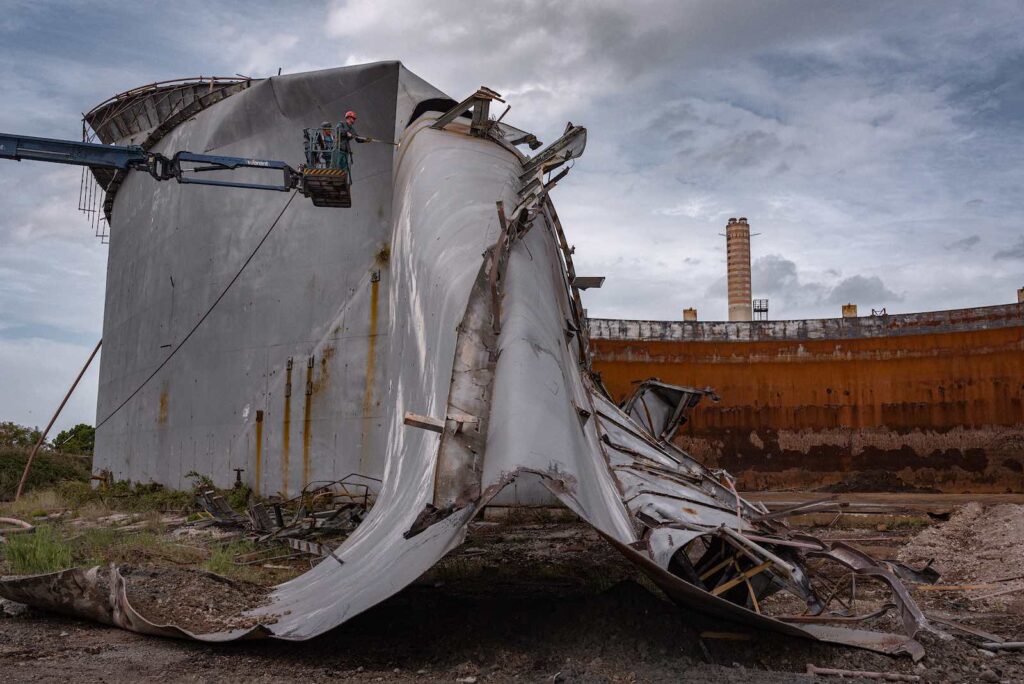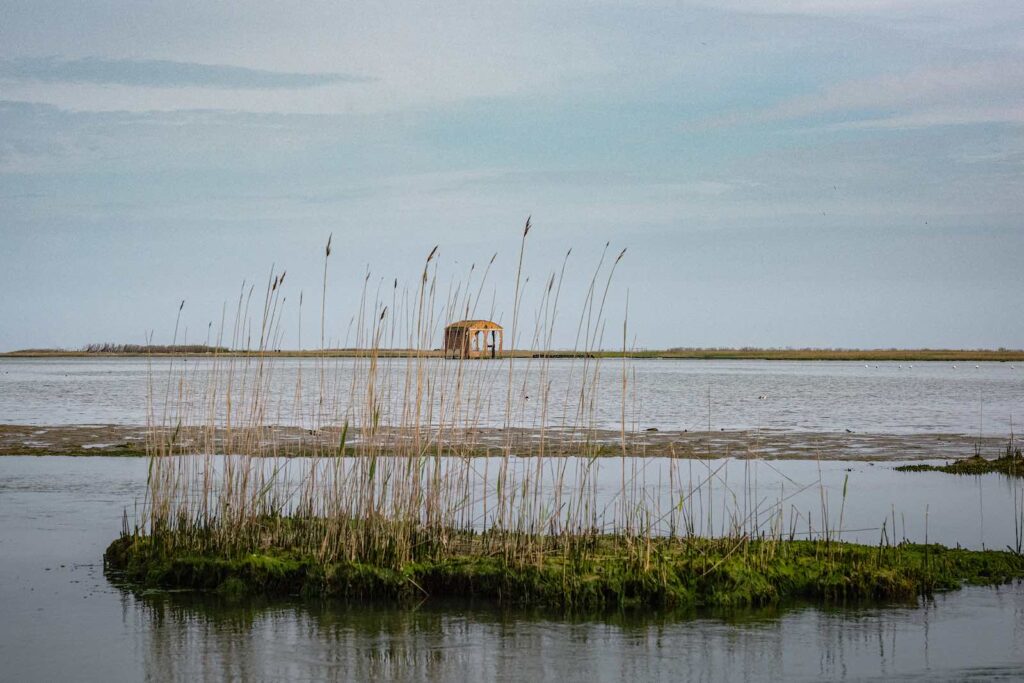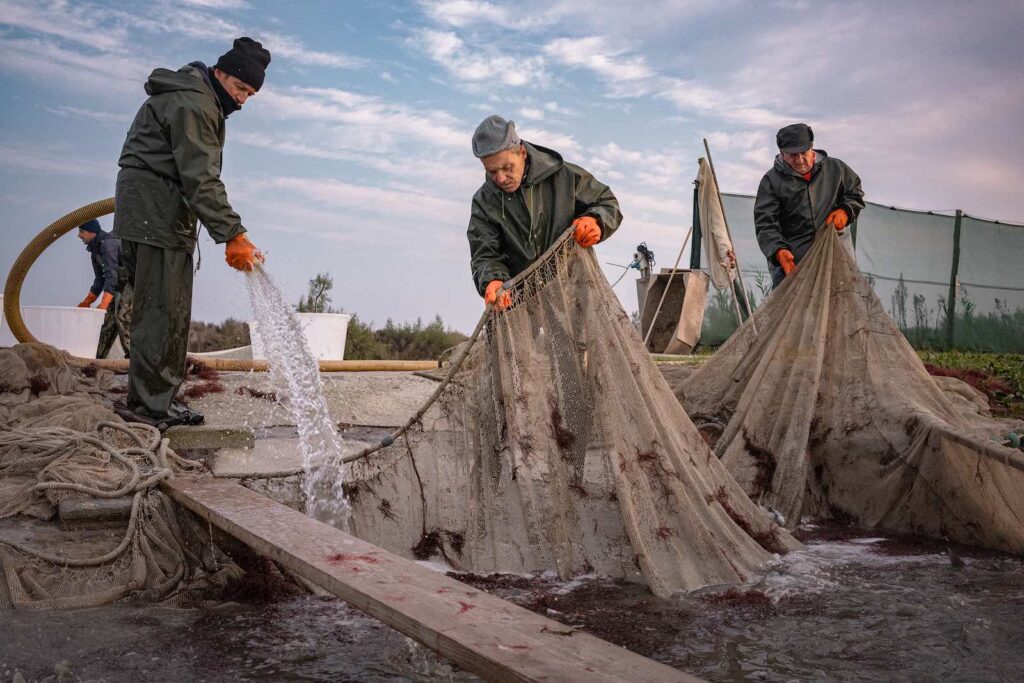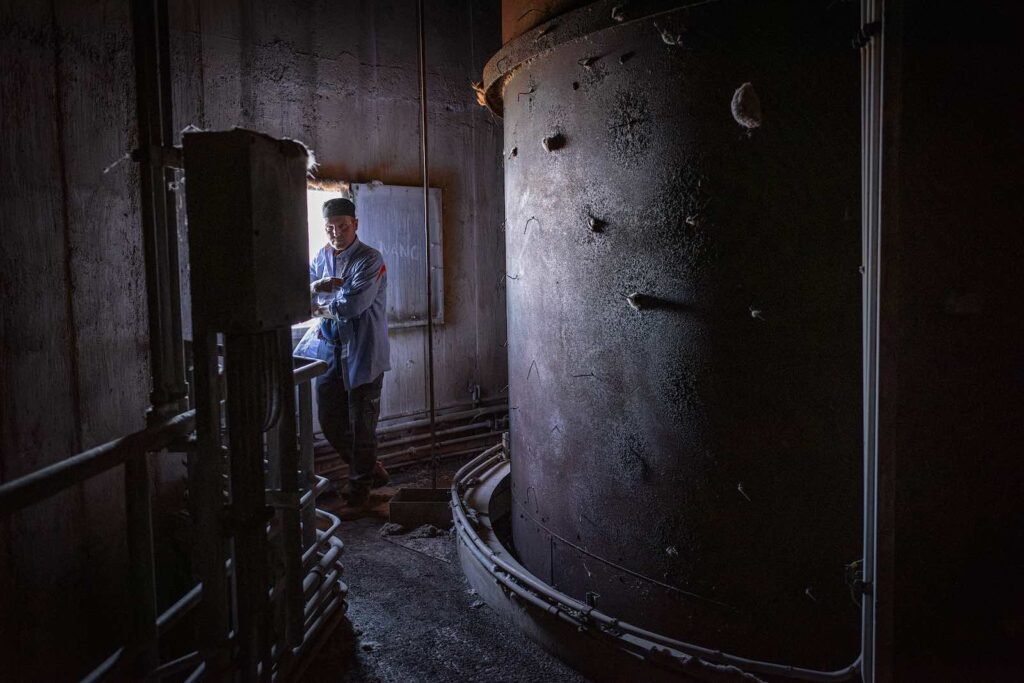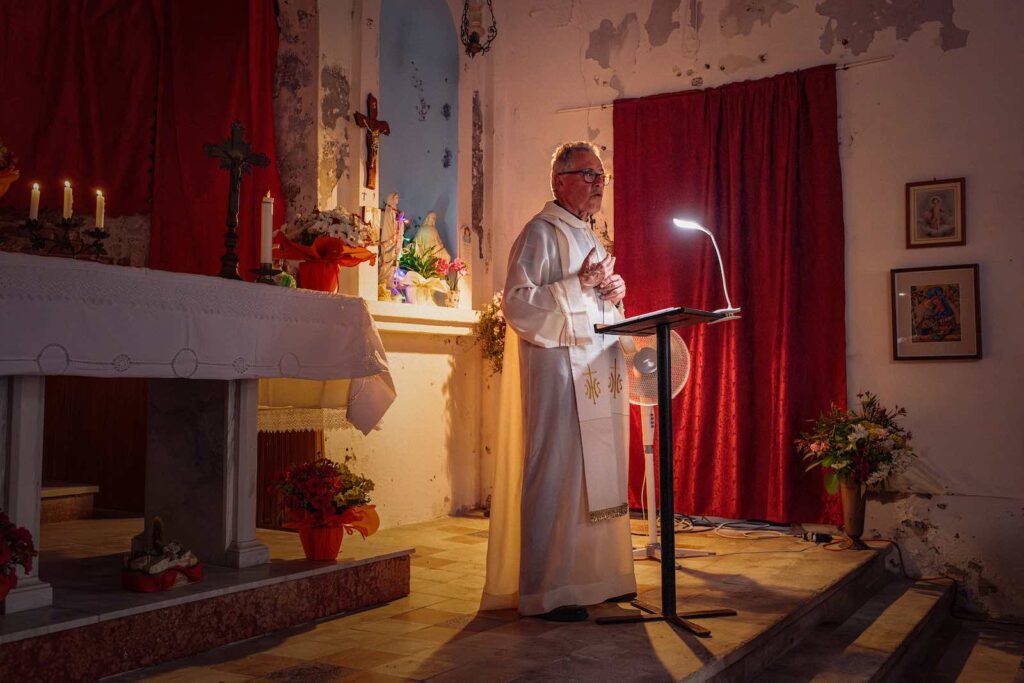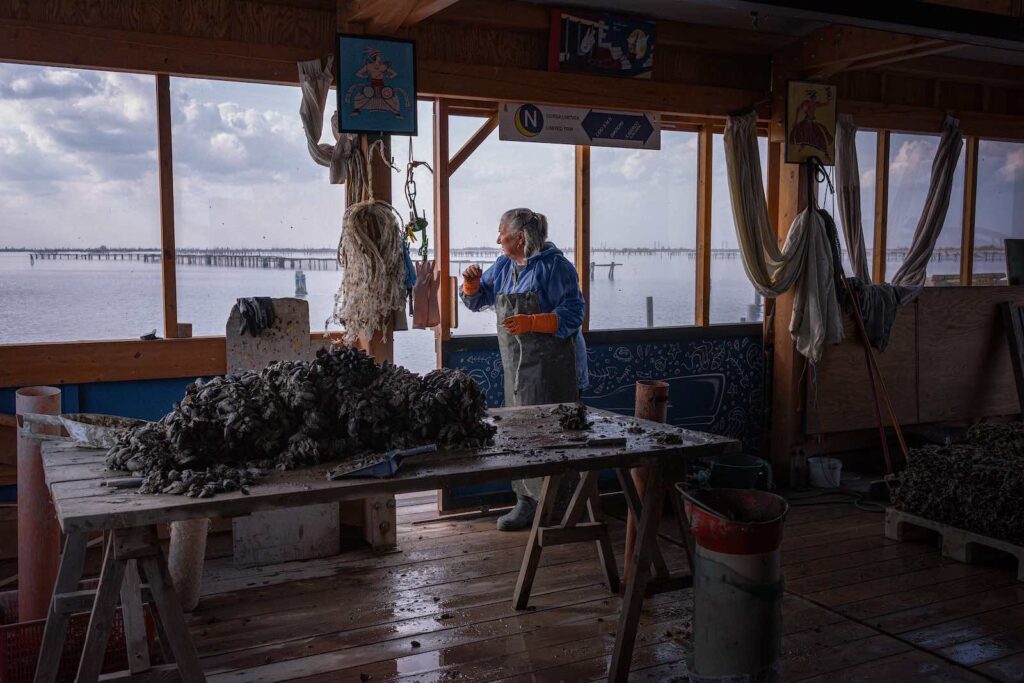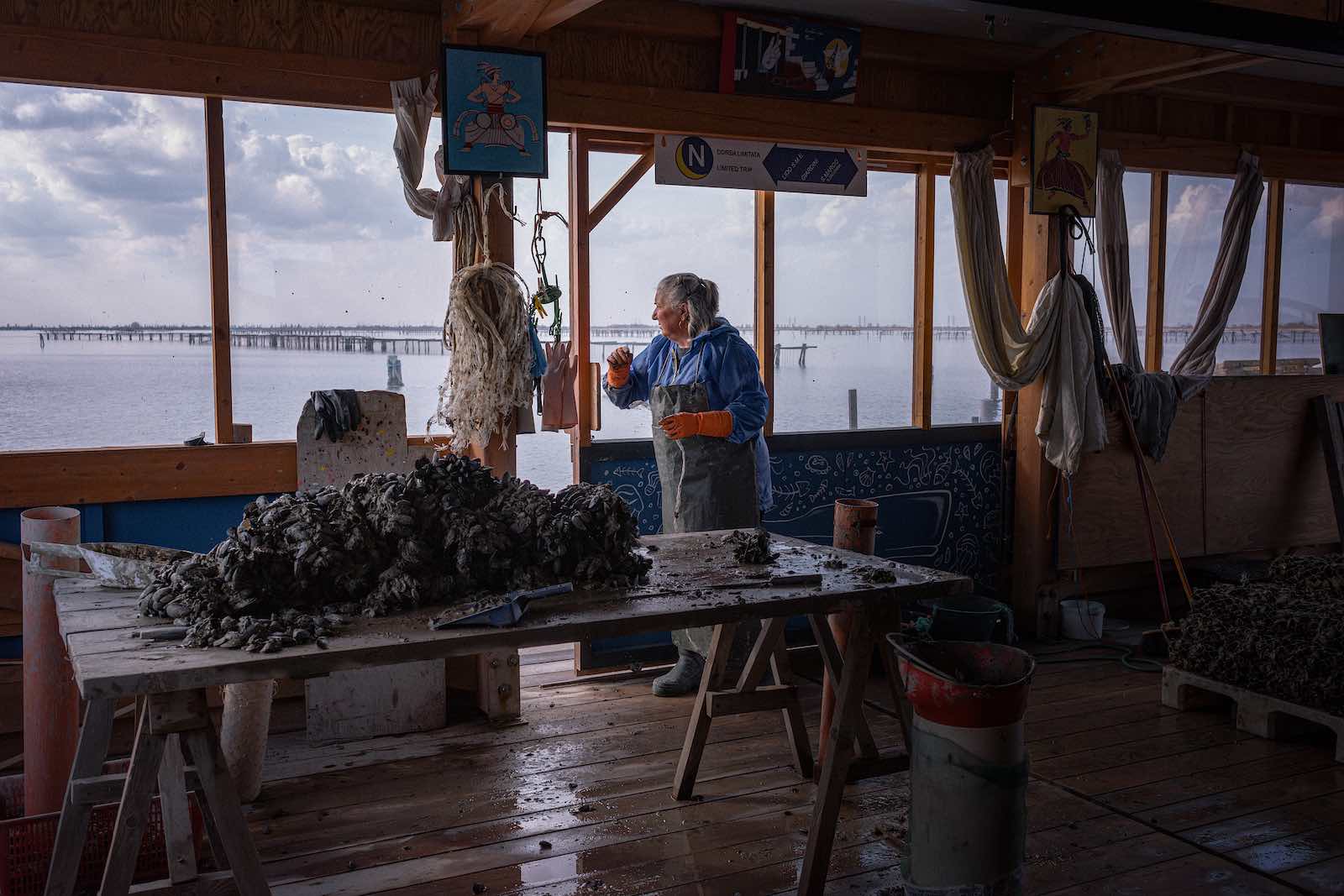
©Isabella Franceschini
The Leap of Fish that Dream of Flying
Winner of the Marilyn Stafford FotoReportage Award 2024 in conversation with Shifra Kirby
Congratulations on winning the Marilyn Stafford FotoReportage Award 2024! Can you tell us what this recognition means to you?
I am incredibly honored and grateful to receive this prestigious award! I have long admired Marilyn Stafford, both for her iconic work and her fascinating life. Even today, her unique vision feels contemporary and inspiring, transcending time. Like her, I love shooting with a 35mm camera!
The Marilyn Stafford FotoReportage Award represents a unique opportunity to share and showcase my project with a wider international audience, raising awareness about the importance of preserving fragile ecosystems like the Po Delta. Additionally, this award provides the resources I need to continue documenting my work in this area and may even help me realize a book that promotes sustainable development.
Winning this award is an important step toward deepening my commitment to environmental protection and fostering appreciation for our invaluable natural heritage. I extend my deepest gratitude to all the members of the jury and the FotoDocumentary staff for their support and recognition.
The Leap of Fish that Dream of Flying’ is such an intriguing name for a project, what was the inspiration behind calling the project this?
I am passionate about poetry, and ‘The Leap of the Fish That Dreams of Flying’ is a verse from Opera sull’acqua by the Italian novelist Erri De Luca, published by Einaudi. I like to imagine that each person will find their own interpretation as they view my photos.
For me, this title serves as a metaphor for the redemption of the people of Polesine, who have too often been passive spectators to numerous speculative projects imposed on these brackish, yet almost sweet, lands over time—projects carried out without the involvement of the local community.
How did you learn about Po Delta, and how do you approach the creative process when starting this new project?
Even though I live near Bologna, about a two-hour drive away, I have always known the Po Delta. It’s always been a part of my imagination, a sort of family heritage. My mother’s childhood is filled with memories of her friendship with a girl her age whom my grandparents took in for a year to help her family after the great Polesine flood. Additionally, my husband is from the main city nearby.
Even before the creative process begins, I take action by researching specialized texts to learn as much as possible about what I want to document. In this case, I started with historical texts and moved on to scientific and economic reports. I was particularly struck by an academic paper by Prof. Marina Bertoncin from the University of Padua, and I tried to contact her via email. Luck was on my side, and I have to admit that she became the driving force that sparked a cascade of essential knowledge for my work, such as my meeting with the President of the Land Reclamation Consortium. I also worked with specialist guides who helped me understand the balance of the local birdlife. Then, my friendship with the inhabitants of the area—each brought their own invaluable contribution to my work. This is a research process that I always consider essential even before I begin shooting. I must admit that everything truly began when I gained access to the power plant before the dismantling work started during the pandemic. Inside the plant, I stepped out of my comfort zone, as safety required not only specific clothing, including a protective helmet, safety shoes, and a fluorescent jacket, but also maintaining certain distances at all times and always being accompanied by staff. I owe a special thanks to all the personnel for their dedication in trying to meet my needs.
What initially drew you to a career in photography, and how has your journey evolved over the years?
My desire for knowledge and a deeper understanding in an era where everything is consumed quickly is what initially attracted me to a career in photography. I am drawn to medium- to long-term photographic narratives, as they allow me to pause and reflect more deeply on the subject. In this case, I began by documenting the demolition of the power plant in Polesine Camerini, then continued to capture the social and environmental changes affecting the area and its inhabitants. I believe that photography, especially reportage, has the power to provoke thought in a broad audience through its immediacy, and perhaps even break through indifference.
As for how my journey has evolved, I believe the stories I’ve chosen to tell over the years have shaped and strengthened my vision. However, evolution is intrinsic to my personality in the sense that the relationships I’ve built with the subjects of my stories will always be a part of me and have contributed to my growth. This, too, is the essence of photography—an ongoing exchange that continues to enrich and transform me.
Who or what has been your greatest influence in inspiring your work?
In my documentary work, I always seek beauty, authenticity, and the element of surprise in the depths of the human experience. In this regard, I have paid close attention to the work of three Italian photographers who have worked on the Po Delta in different periods, with different approaches and visions, whom I particularly admire. Specifically, I refer to Pietro Donzelli with ‘Land without Shadow: The Po Delta in the 1950s,’ Luigi Ghirri with ‘Il profilo delle nuvole,’ and Gianni Berengo Gardin with ‘Polesine.’ Additionally, I hold great admiration for ‘To the left of Christ’ the work of Italian photographer Dario De Dominicis, who developed a project in the natural area of Rio de Janeiro’s port, where industrial development has impacted the social and environmental transformations of the area.
What advice would you give to aspiring photographers, especially women looking to enter the field?
Seek out what triggers your emotions. Nurture that curiosity, which, along with a bit of luck, can lead you to uncover important stories worth telling. Listen carefully, even before you speak. Respect yourself first and foremost, before respecting others in everything you do. Always be true to yourself—authentic but critical. More and more, we have the responsibility not to please everyone.
That’s what I usually do, anyway!
The Marilyn Stafford FotoReportage Award
The award is made annually to a professional woman photographer to facilitate completion of a documentary phot essay that” addresses an important social, environmental, economic or cultural issue, whether local or global”.

